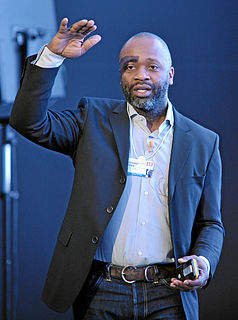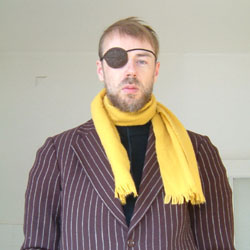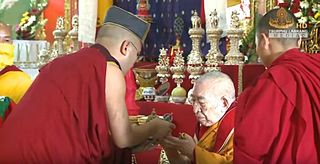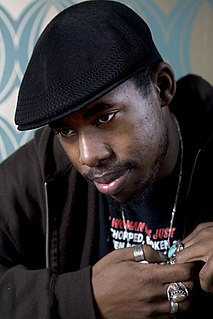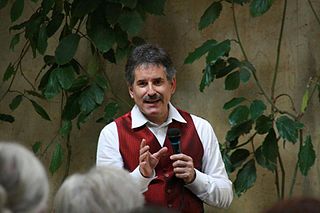A Quote by Pema Chodron
In practicing meditation, we're not trying to live up to some kind of ideal -- quite the opposite. We're just being with our experience, whatever it is.
Quote Topics
Related Quotes
Ego could be defined as whatever covers up basic goodness. From an experiential point of view, what is ego covering up? It's covering up our experience of just being here, just fully being where we are, so that we can relate with the immediacy of our experience. Egolessness is a state of mind that has complete confidence in the sacredness of the world. It is unconditional well being, unconditional joy that includes all the different qualities of our experience.
Quite often I have been faced with people who were praised and admired for their talents and their achievements... According to prevailing attitudes, these people-the pride and joy of their parents-should have had a strong and stable sense of self-assurance. But the case is exactly the opposite... Whenever they suddenly get the feeling they have failed to live up to some ideal image or have not measured up to some standard, then they are plagued by anxiety or deep feelings of guilt and shame. What are the reasons for such disturbances in these competent, accomplished people?
While the primary function of formal Buddhist meditation is to create the possibility of the experience of "being," my work as a therapist has shown me that the demands of intimate life can be just as useful as meditation in moving people toward this capacity. Just as in formal meditation, intimate relationships teach us that the more we relate to each other as objects, the greater our disappointment. The trick, as in meditation, is to use this disappointment to change the way we relate.
[W]hen you're shooting a doc, you're trying to class it up because you can. You know, you're trying to make this feel like cinematic experience. And when you're doing fiction you're trying to do the opposite thing you're trying to take this very artificial experience this very artificial experience and make it feel real and visceral.
Franz Kafka once said that happiness consists in having an ideal and not progressing towards it. If you did progress towards it, you'd be unhappy because you'd never be able to reach it. You can incrementally improve your life, but you never quite experience the glamour. You never quite get to your utopia, or whatever it is. And once you realize that you can be quite Buddhist about it, and say, "Well, okay, I'm just going to keep detached from it all."
What's recommended is that if you have a good experience, don't get too excited. And if you have a bad experience, don't mistake it for a serious deviation or a sidetrack that you have to find your way back from. If you have a bad experience, just continue practicing as you were. In other words, whatever happens, just keep looking at your mind.
I believe there's more than this - that maybe when we die our brains conjure up some kind of shutdown experience, and that's what people try to sum up as the afterlife. But yeah, I think something else is going to happen and it's going to be crazy and confusing and weird, and we probably won't know what it's all about. It'll just be another place where we're trying to understand why we exist at all.





